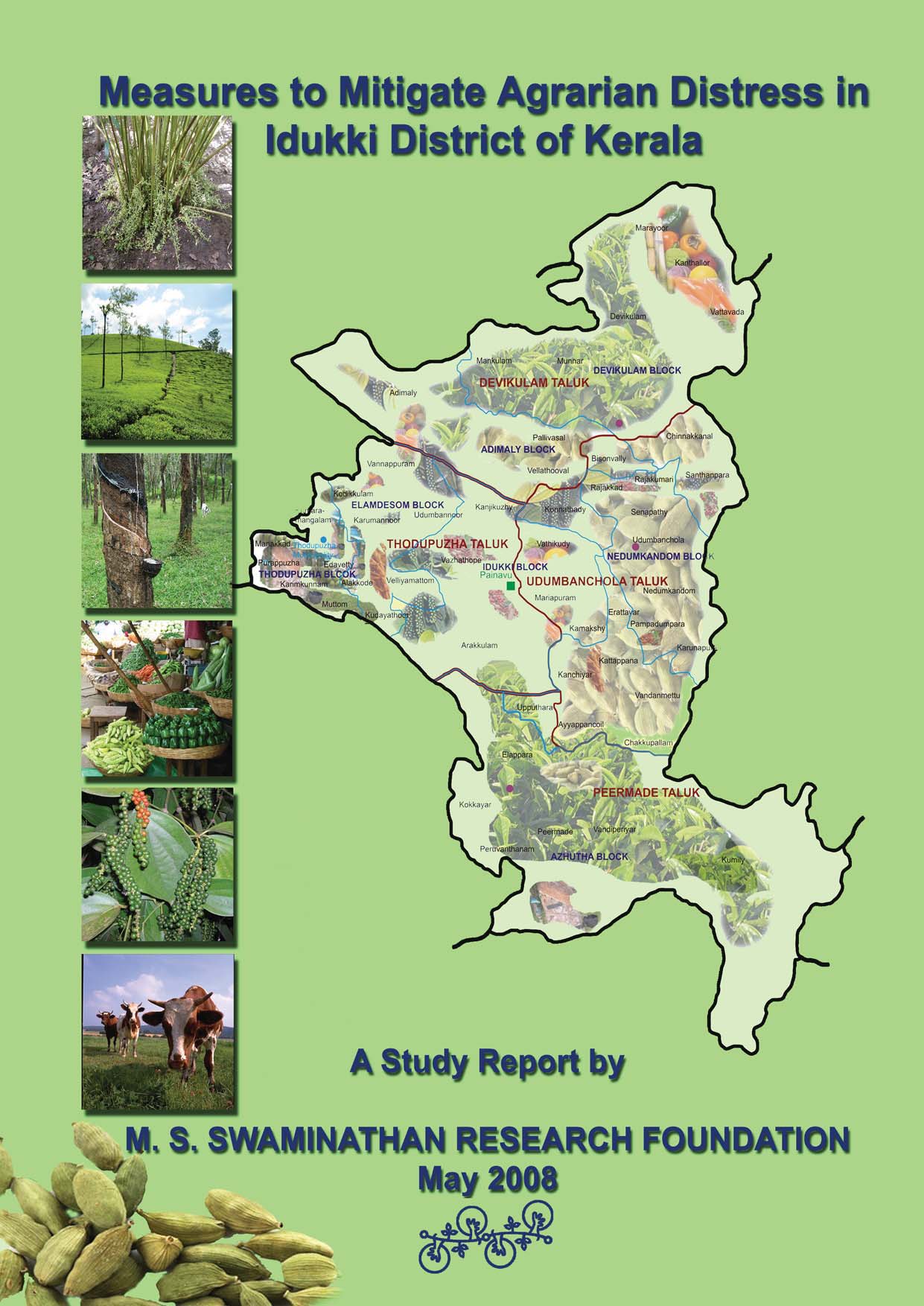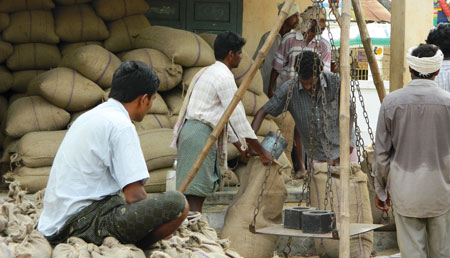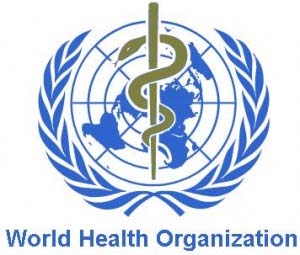/regions/political
Political
Delhi water privatization: FAQ on background and recent developments
Posted on 10 Jul, 2011 08:09 PMEarlier efforts at introducing privatization in Delhi can be traced to 2002, when the DJB commissioned the Delhi Water Supply and Sewerage Project Preparation Study with the assistance of the World Bank.
Measures to mitigate agrarian distress in Idukki district of Kerala : A study report by MSSRF
Posted on 10 Jul, 2011 07:38 PM Although Idukki is generally perceived as a ‘spices district’ and a ‘plantation crop district’, about 95 per cent of the farmers here are small with tribal farmers constituting a substantial component. Public investment in agriculture in this district is very poor and this hampers agricultural progress and rural livelihoods in many ways.
Although Idukki is generally perceived as a ‘spices district’ and a ‘plantation crop district’, about 95 per cent of the farmers here are small with tribal farmers constituting a substantial component. Public investment in agriculture in this district is very poor and this hampers agricultural progress and rural livelihoods in many ways.
As a result of high cost of production of major crops and its volatile prices, small farmers who constitute the majority of the farming population have accumulated debt burden exceeding 700 crores. More than eighty per cent of this debt is due to crop loans to small and marginal farmers.
The recommendations in this report are made after giving due consideration to ongoing programmes and resources being made available thereof. These are mainly focused on the small, marginal and tribal farmers and other economically disadvantaged sections. The stress is on sustainability of agricultural production systems and strengthening the regional ecology.
National Water Policy - An alternative draft for consideration by Ramaswamy R Iyer - Economic and Political Weekly
Posted on 10 Jul, 2011 08:31 AMThe paper sets forth for consideration a broad national perspective on the nature of water and on its prudent, wise, sustainable, equitable and harmonious use. The Ministry of Water Resources is at present engaged in revising the National Water Policy 2002. Iyer is of the opinion that instead of trying to make changes in the 2002 Policy, the Ministry should put it aside and draft a new policy, starting from first principles.
Status of monsoon forecasting in India – A scientific correspondence in Current Science
Posted on 09 Jul, 2011 09:49 PMThe article dealt with the prediction of Indian summer monsoon rainfall by five atmospheric general circulation models (AGCMs) during 1985–2004.
Bracing for flood hazards : A commentary in Current Science
Posted on 09 Jul, 2011 07:22 PMClimate modeling studies indicate that there will be more spells of intense rainfall and frequent instances of extreme rainfall. This prediction is coming true, particularly in the central sector of the Himalayan belt, where there is pronounced decline in winter precipitation (both rain and snow) and prolonged spells of drought in summer broken by cloudbursts in localized areas.
Draft National Food Security Bill approved by the National Advisory Council
Posted on 09 Jul, 2011 04:11 PM
The issues related to the Draft National Food Security Bill approved by the National Advisory Council (NAC) were taken up for discussion by the Empowered Group of Ministers (EGoM) in their meeting on 11th July, 2011 which approved it. The Bill has to be now ratified by the parliament where it is proposed to be introduced in December 2011 to become law. It would need about 61 million tonnes of grains a year, the bulk of which would be wheat and rice.
The EGoM tried to settle the differences between the views of the NAC and the Food Ministry on the contours of the legislation such as on coverage under the Bill, method to be adopted to ensure food security, amount of food grain required and the implication of the Act on the food subsidy ‘burden’. While the NAC had preferred legal entitlement to subsidised foodgrain for 90 per cent of rural population and 50 per cent of urban population, the Food Ministry was interested in lowering of the legal coverage for rural families. The Bill is now with the Law Ministry.
Farmers on crop holiday in Andhra Pradesh: They shun growing paddy this kharif season
Posted on 09 Jul, 2011 01:28 PM Andhra Pradesh produced 14 million tonnes of rice this year. In absence of storage space many schools function as godowns
Andhra Pradesh produced 14 million tonnes of rice this year. In absence of storage space many schools function as godowns
Photo: M Suchitra
Groundwater governance in India – A case study by World Bank
Posted on 09 Jul, 2011 11:43 AMIt examines the impediments to better governance of groundwater, and explores opportunities for using groundwater to help developing countries adapt to climate change. It attempts to understand the practical issues that arise in establishing robust national governance frameworks for groundwater and in implementing these frameworks at the aquifer level.
The case study focused on the national, state and local levels. At the national and state levels, it analyzed the policy, legal, and institutional arrangements to identify the demand and supply management and incentive structures that have been established for groundwater management. At the local level, it assessed the operations, successes, and constraints facing local institutions in the governance of a number of aquifers within peninsula India, on the coast and on the plain of the Ganges river valley.
Guidelines for drinking water quality - Fourth edition by World Health Organisation (2011)
Posted on 09 Jul, 2011 10:41 AM This integrates the third edition, which was published in 2004, with both the first addendum to the third edition, published in 2006, and the second addendum to the third edition, published in 2008. It supersedes previous editions of the Guidelines and previous International Standards.
This integrates the third edition, which was published in 2004, with both the first addendum to the third edition, published in 2006, and the second addendum to the third edition, published in 2008. It supersedes previous editions of the Guidelines and previous International Standards.
This edition of the Guidelines further develops concepts, approaches and information introduced in previous editions, including the comprehensive preventive risk management approach for ensuring drinking-water quality.
Minister for Water Resources addresses India business forum at the Singapore International Water Week - PIB release
Posted on 08 Jul, 2011 04:06 PMThe theme of the forum was: ‘Sustainable water solutions for a changing urban environment’.